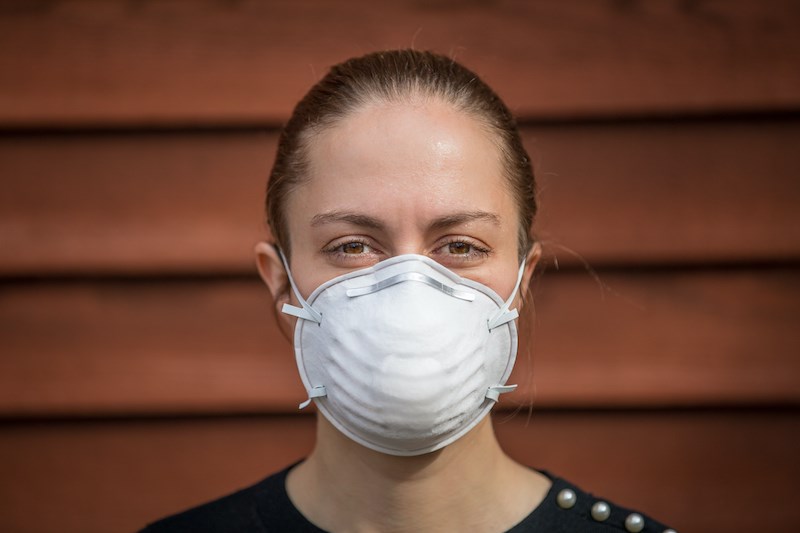Despite the vocal outcry over the lack of N95 masks across the province, B.C.'s top doctor stresses that face coverings shouldn't be the only layer of protection against the spread of coronavirus.
As daily case numbers of the virus continue to rise in B.C. due to the Omicron variant, provincial health officer Dr. Bonnie Henry told reporters in a press briefing Friday (Jan. 7) that COVID-19 safety plans must include several layers of protection.
"I think we need to put things into perspective and look at [World Health Organization] documents [and] look at what we know about how things are transmitted in public settings," Henry said.
"Outside of healthcare settings...and schools are a very good example...we have many, many things in place that make it very unlikely that viruses and other pathogens will be transmitted."
Layers of protection, in addition to a "hierarchy of protection," significantly reduce the risk of transmission, Henry explained. Examples of safety protocol include having reduced numbers of people, preventing mixing and mingling, or having students attend class at different times. Additionally, businesses may use screening to prevent the "entrance of a hazard" to infect others.
"So you can't become infected if there's nobody with the virus in the setting," she emphasized. "There are many things that we do in these structured settings to make sure that you don't have to rely on the moderately increased filtration capacity of a respirator versus a medical mask."
Henry added that "we need to be pragmatic and practical" and the best mask is one that properly fits your face.
The Public Health Agency of Canada released some updated information about face masks and layers of protection to prevent the spread of COVID-19 in November 2021. Wearing a face mask that fits comfortably and correctly is most important, underscored Henry. But while non-medical masks are adequate for most people, she noted that others may want to consider wearing medical ones.
Non-medical masks generally can help prevent the spread of COVID-19, but the PHAC notes that medical masks and respirators provide "better protection."
Experts say policies prohibiting N95 use are a step in the wrong direction when more protective masking is crucial to curbing the spread of the Omicron variant of COVID-19.
In an interview with the Canadian Press, Virginia Tech engineering professor Linsey Marr said medical masks and respirators are made out of materials that can both filter out particles of all sizes. However, the main difference comes down to fit — respirators are designed to form a seal around the face, while medical masks often leave gaps under the cheeks or chin that allow very small particles to seep through.
These leaks lead to significantly less protection against the novel coronavirus, she explained. A well-fitted respirator offers more than 95 per cent protection, while the effectiveness ranges from 20 per cent to 90 per cent for medical masks depending on how snug it is.
Find more information about the updated guidance on face masks with the Public Health Agency of Canada online.
With files from the Canadian Press.



